Russians ran for their lives when Ukraine launched historic attack
Raw recruits under attack in Russia’s western region tried to contact battalion commanders, only to discover their military leaders had abandoned them.
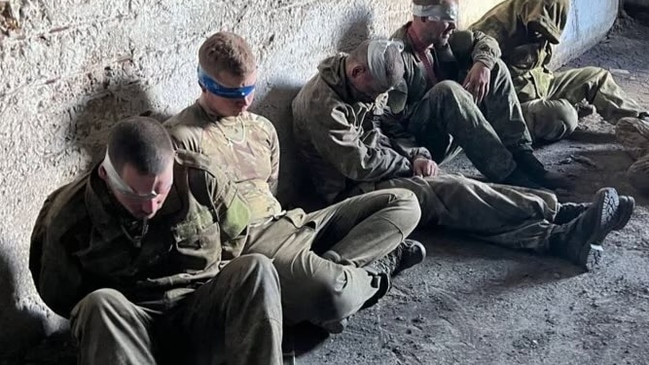
The architecture student from St Petersburg had never expected to find himself in a battle. When Fyodor Smakilo, 22, was drafted eight months ago for a year’s compulsory military service, he was told it was for training. Then he was sent to guard Russia’s western border with Ukraine.
One day, almost two weeks ago, he was surprised to hear gunfire. The commanding officer took to the radio. It seemed that their unit was surrounded by Ukrainian forces, who had punched through defences to launch a surprise incursion into Russia with as many as 12,000 troops.
“It was like something from the Second World War. Our commander shouted at us, ‘No retreat’,” Smakilo told me in the prison cell he now shares with 14 other young Russians. Like the other prisoners quoted, he agreed to be identified and to have his full name published.
They are among several hundred prisoners Ukraine claims to have captured in its audacious raid into Russia’s western Kursk region.
Theirs are the first accounts of the chaos, desperation and disorder in the ranks of the Russian military since Ukraine caught the world by surprise to stage the first significant foreign attack on its neighbour’s territory since the German invasion of 1941.
Ukraine claims to have captured almost 725sqkm of Russian territory, including 80 villages and the town of Sudzha.
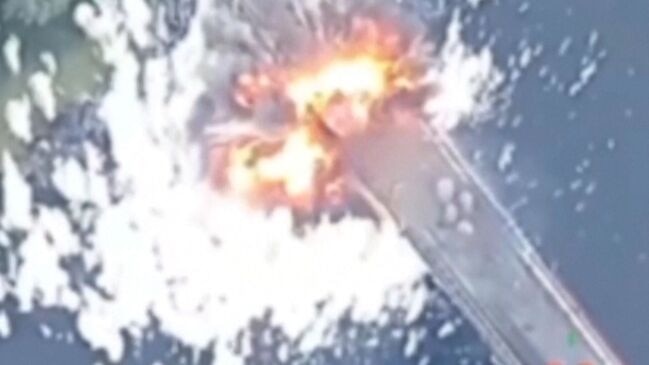
On Friday it emerged that its forces had also destroyed a strategically important bridge over the River Seym, making it harder for Moscow to resupply its troops in the region.
The Ukrainian authorities have stressed that they have no interest in occupying part of Russia permanently. Instead the incursion has been widely interpreted as an effort to relieve the pressure on beleaguered Ukrainian positions in the eastern Donbas region, where Russian forces were last week closing in on the vital town of Pokrovsk.
It would also strengthen Kyiv’s position in the event of negotiations to end the war if Ukraine can hold the territory until then.
Some 200,000 Russians have been evacuated from their homes, many of them complaining about the government’s failure to protect them. This makes it an embarrassing political as well as military dilemma for President Vladimir Putin, raising questions about the strength of his chain of command and military intelligence.
“I’m sure Putin is extremely pissed off with this situation, it’s a real humiliation for him,” said Oleksandr Danyliuk, former head of Ukraine’s national security council and an ex-special forces combatant.
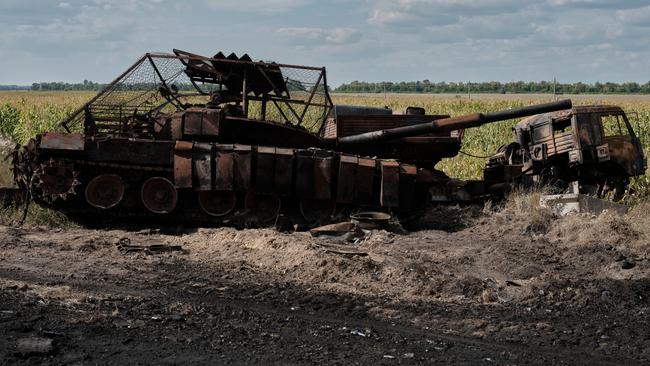
The assault highlighted surprising weakness in Russia’s border defences. This was exemplified by the young, shaven-headed conscripts I met in their prison cells in northeastern Ukraine last week. One of them, Sergei Karimov, described how his senior officer had tried to get on the line to the battalion commander as their unit came under attack. “But the commander had already run away,” he said.
Ukrainian prison guards were present during the interviews in the cells but they did not attempt to limit the conversations or ask to review the material before publication.
For the captured raw recruits, the unanticipated Ukrainian rampage into Russia may prove fortuitous: they expect to be sent home soon in exchange for Ukrainian prisoners of war.
Denis Kanev, 21, from a village near Murmansk in the Arctic Circle, seemed in good spirits, recalling that it had been -50C when he had left home eight months ago to begin his military service. He has written to his father and girlfriend, Sabrina, to inform them of his capture. “I’ve told them not to worry, I’m not injured,” he said.
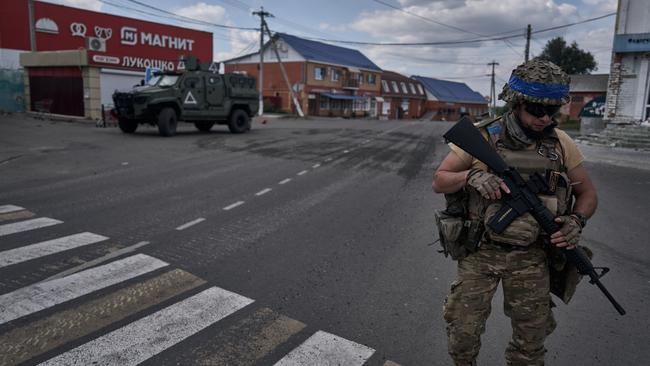
Smakilo was not so lucky: his right thigh is bandaged after being shredded by shrapnel. He had tried to live up to his commander’s injunction not to be taken alive. “We had been told we would be tortured, and worse, if we were captured.”
After holding out for an hour, and with several dead comrades lying around him, he had hugged one of his friends then detonated a grenade, thinking they might die, to avoid whatever horrors awaited at the hands of the invaders.
Instead he survived to see a Ukrainian medic gouging shrapnel out of his leg in the prison hospital. “I was surprised and grateful – without that, my leg could have become very infected,” he said, sitting on a bottom bunk with two inmates.
One was Sergei Zaikin, 21, from Saransk, 600km east of Moscow. He had been guarding a border crossing in a different part of the region when his unit came under attack on August 6. The commanding officers appeared to have fled. “Somebody shouted out, ‘Please don’t shoot, we’re conscripts’,” he recalled.
“The Ukrainians told us to take our vests off, put our weapons down and come out with our hands up. I was frightened. We were told certain things about what would happen to us if we surrendered and so that was difficult.”
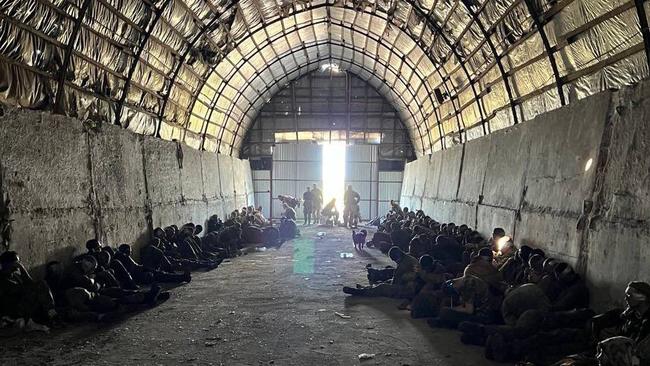
Ukraine is eager to encourage mass surrenders of Russians, and prison officials were at pains to point out how well the inmates are treated.
One avuncular senior prison officer, standing in a dingy corridor outside a cell, said: “These boys were terrified when they first got here. I told them, ‘Calm down, lads, don’t worry, it’ll be all right, nobody’s going to shoot you’. A few days later and they’ve started to smile.”
The prisoners were given clean clothes and plastic sandals.
“We had clean plates to eat off too,” said Zaikin.
Karimov, whose commander had fled, said he had worked as a landscape designer in Tatarstan, central Russia, before being drafted for military service.
While he and his captured comrades-in-arms were being driven to the prison, the guards had stopped at a shop and used “their own money” to buy them water, pastries and cigarettes, he marvelled. “We were starving,” he said. “Those pastries were like holy manna from heaven for us.”
Light filtered into the cell through barred windows, and fluorescent bulbs hung overhead. In one corner, the film Garfield: A Tale of Two Kitties was playing on TV. Next to a sink were piles of plastic plates, a few cups and a glass filled with spoons.
The prisoners get two walks a day outside. They read and play chess. Lunch on the day of my visit was vegetable soup with bread. For breakfast, they get porridge.
“We watch a lot of news on the TV,” said Smakilo. “It’s in Ukrainian but I can understand most of it.”
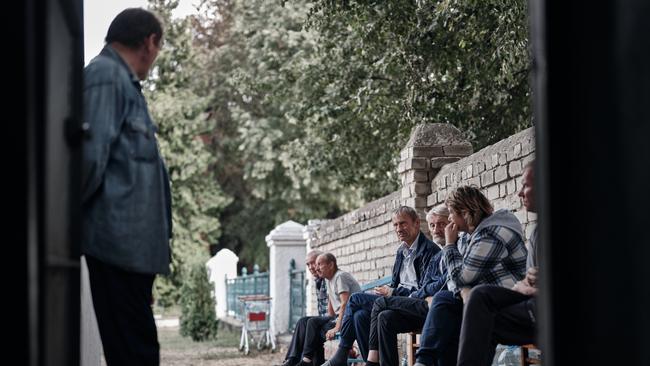
One bit of news on Friday showed a female Ukrainian journalist wandering around the streets of Sudzha, near where Smakilo made his last stand, interviewing residents. “Those bastards abandoned us,” said one unidentified elderly woman, referring to the Russian authorities. Asked if she would like to be offered shelter in Ukraine, she said: “There’s a war going on there with shooting, isn’t there?”
The imprisoned Russian conscripts were understandably coy about voicing opinions on the war.
“Someone’s making money, someone’s losing, war is a business, an opportunity for the rich,” said one of the conscripts. “I’m against all manifestations of violence against people. Every conflict results in dialogue.”
I told Smakilo, whose ambition is to work in the construction business one day and buy his own flat, that I was writing an article for a London newspaper. He asked after Jeremy Clarkson, the Sunday Times columnist and former Top Gear presenter, adding that the car program was his favourite entertainment on Russian television.
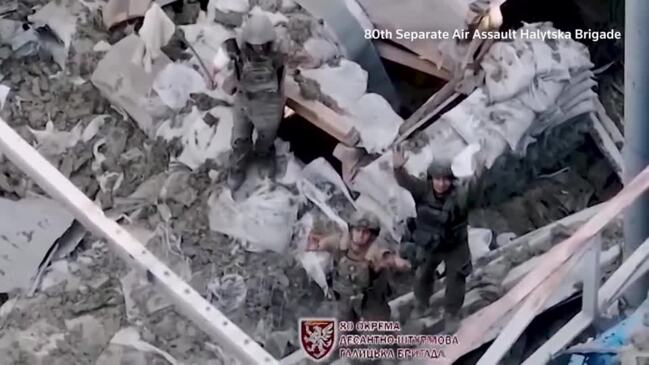
A young prison guard standing nearby chimed in: “Among young Ukrainians also, it is the most popular thing on TV.” The two then swapped anecdotes about their favourite episodes.
Prison officials asked me not to divulge the exact location of the prison and declined to be named, perhaps fearing some retribution from Russia.
According to a senior British military source, however, the Ukrainian operation has “lifted the spirits of Ukraine’s military as well as civilians, and signals to Western backers that Ukraine has plenty of fight left in it and is not close to settling for a grinding slow loss of territory in the Donbas as clumsy Russian mass prevails”.
But the British source also wondered how long Ukraine would be able to hold on to the sliver of Russian territory now under its control. “Putin will look to squash this pimple in Russia. He’ll want it totally destroyed,” he said, adding: “For it to be a successful raid, Ukrainian forces need to be able to get out.”
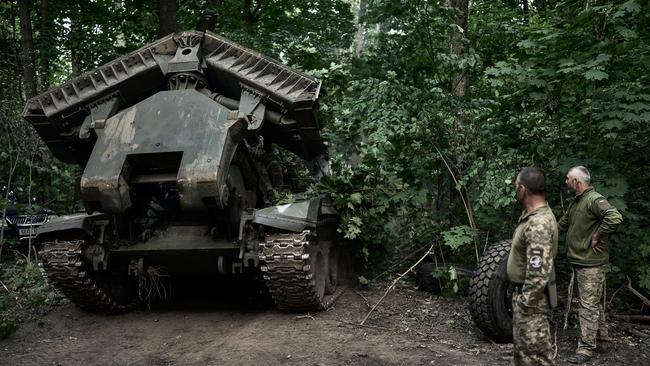
For the time being, though, the operation in Russia appears to be expanding, accompanied by drone attacks on airfields and the bombing of bridges.
The assault has inflicted “a significant reputational defeat” on the enemy, said Mykhailo Podolyak, a presidential adviser. “Over the past year, the conflict has stagnated … Ukraine had to find solutions that would lead this war to a new stage, we need to increase the pressure on Putin.”
From his cell, Smakilo has written a letter to his mother, an industrial plant worker in St Petersburg. “She’s a single mother. She gave her youth to bringing up me and my sister. I’ve told her how much I love her and not to worry about me.”
He said he had included a few words from an old Soviet poem he had learnt in his first days of military training. “It says, ‘I’ll be back’.”
THE SUNDAY TIMES

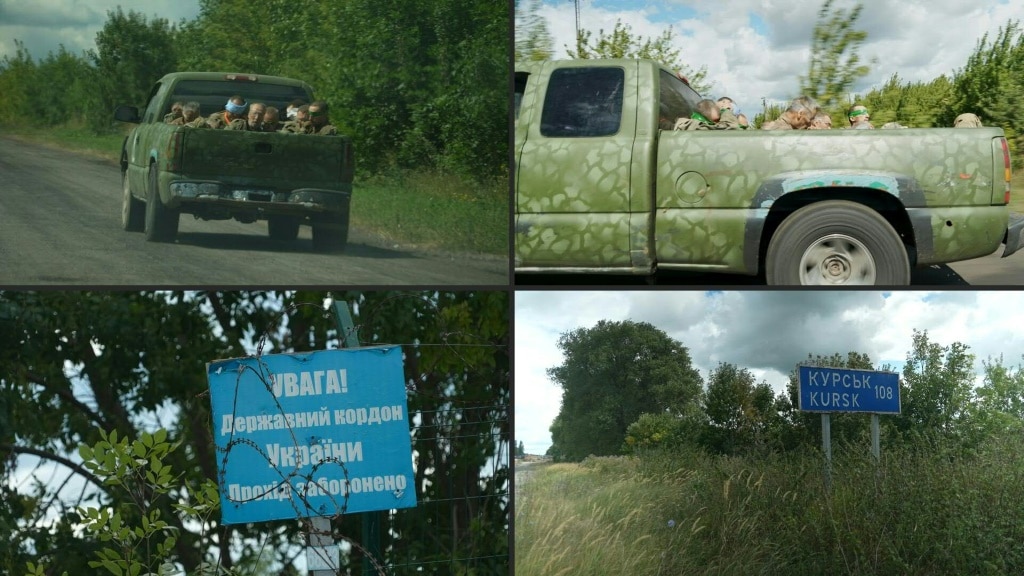
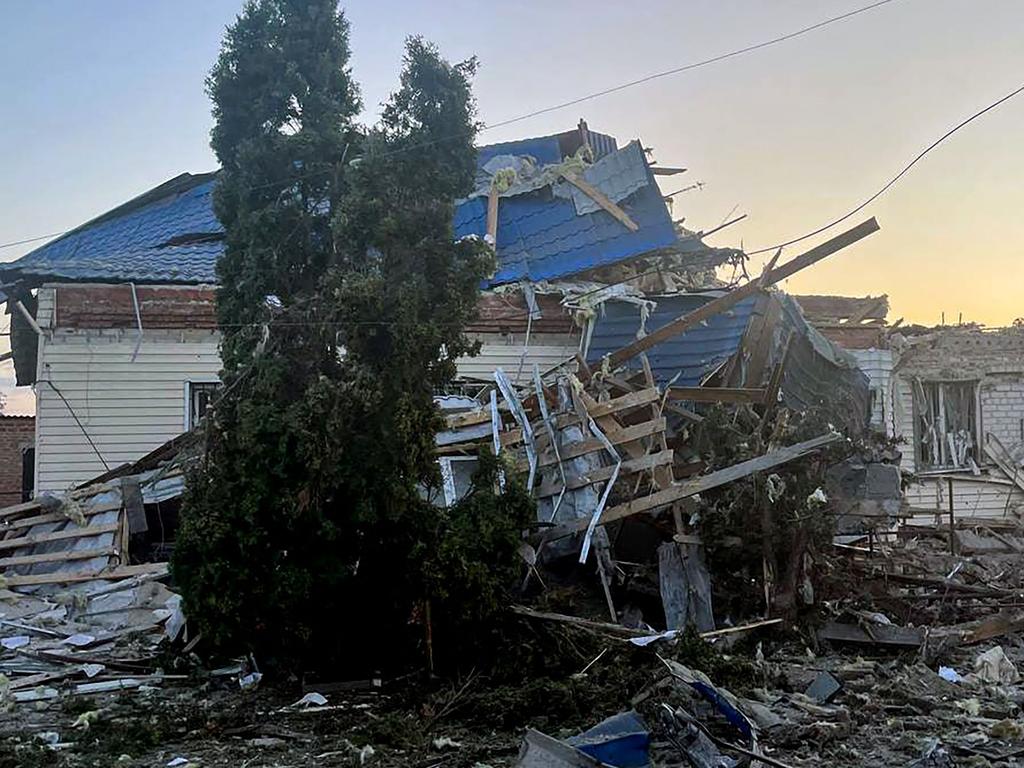


To join the conversation, please log in. Don't have an account? Register
Join the conversation, you are commenting as Logout